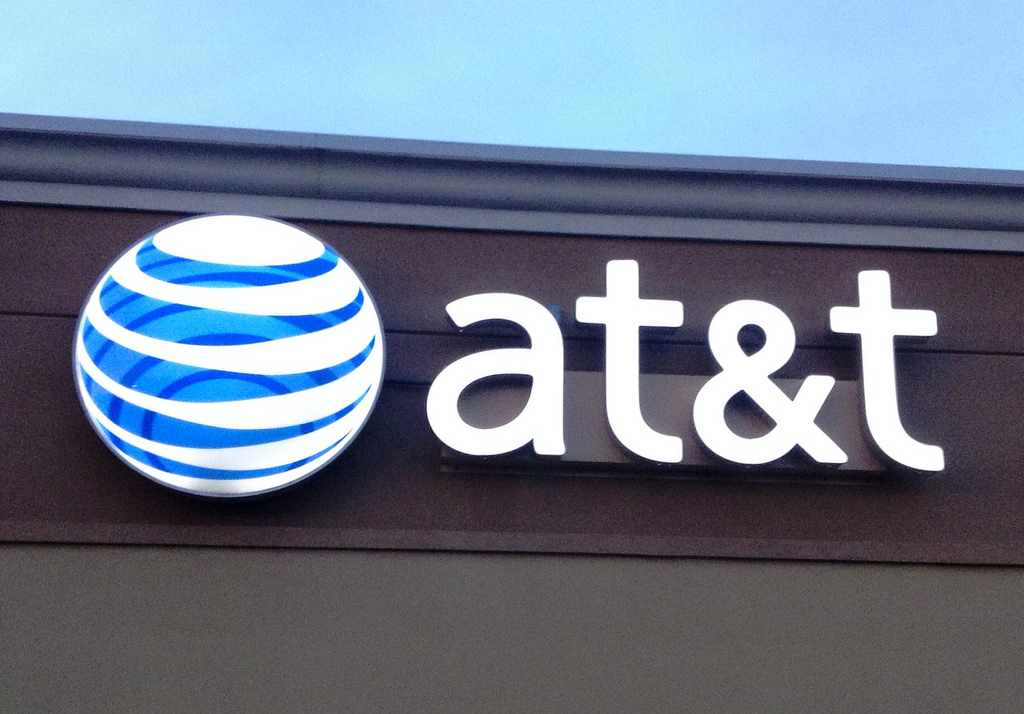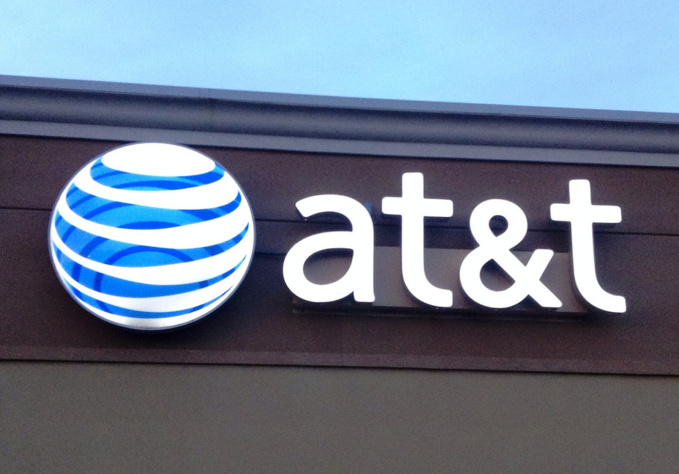Last week, the US Department of Justice announced that it would not appeal against the decision of the US court, which two days earlier allowed a $ 85 billion merger between the AT&T telephone corporation and the cable and satellite corporation Time Warner. So the last obstacle to the deal has disappeared. This changes the alignment of forces not only in the American media market, but also worldwide. After the Justice Ministry’s statement, AT&T reported on the successful completion of the merger. The negotiations started in October 2016, but were met with stiff opposition from the administration of Donald Trump, who a month later became president of the United States. During the election campaign, Donald Trump spoke out against the AT&T and Time Warner deal, which, in his opinion, could monopolize the American television content market. In October 2016, he stated that "we will not approve this deal, because it will result in the concentration of too much authority in one hand."
Indeed, the deal between the two corporations is a landmark. This is the so-called vertical merger, when not direct competitors in the same industry are united, but companies operating in related markets. For example, this can be production and distribution of the same product, which can lead to monopolization of the market.
This is the second decisive victory of AT&T over the American state. Established in 1885 as the Bell Telephone Company, later renamed the American Telephone and Telegraph Company, the corporation was in 1982 forcibly split into several companies to end its monopoly on the market. All these companies were called "Baby-Bells". However, the process of reuniting the company has begun since 2005, and by now almost all "Baby-Bells" have returned under the unified management of AT&T.
The corporation is the world's largest telecommunications company, the second largest mobile operator and the largest fixed-line telecommunications operator in the United States. In turn, Time Warner is the third largest producer of entertainment content in the world (after Comcast and Walt Disney). It comes up with movies, TV shows, including news, cartoons, etc. Time Warner includes the CNN channel, cable and satellite TV operator HBO Warner Bros movie company, TNT cable channels, Cartoon Network, etc. Thus, AT&T will be able to provide the widest range of content from Time Warner through its distribution channels. In addition to the dominant presence in the US - 99% coverage by fixed telephone networks - the company operates in approximately 200 countries around the world, providing Internet access services, telephone and mobile communications.
American experts note that such a deal could not have been thought of even a decade ago. The risk of monopoly would be too great, even given existence of such competitors of the "traditional" media and telecommunications market, that is corporations Walt Disney and Comcast.
However, over the years, a real revolution has taken place in the market for the production and distribution of media content. This has threatened the positions of old-timers. It's about the growing popularity of streaming services and video-on-demand, such as Netflix, Amazon TV. The same Netflix, which has already been producing its own series for several years, now has a client base of 125 million people in 190 countries. Development of broadband Internet made it possible to mass-distribute videostreaming services at moderate prices and significantly reduced risks of possible monopoly of old-timers of the market. That is why the court dismissed objections of the US Justice Department, which tried to block the deal. In addition, many US media reported that Donald Trump was against the deal largely for personal reasons. He is in a long-standing conflict with CNN, accusing him of "bias and spreading false news."
The successful deal of AT&T and Time Warner will cause several consequences for the US and the global media market. First, it has already led to an increase in the activity of its competitors, which are already in a hurry to unite their efforts. In December 2017, Walt Disney, which in addition to the film company of the same name, owns large networks, such as sports ESPN, offered to buy media assets of the corporation 21Century Fox. After the court decision on AT&T and Time Warner, Comcast, a telecommunications company that offered $ 65 billion, published its offer on media assets of 21Century Fox.
In addition to the wave of mergers and acquisitions, which may soon continue among other, smaller media companies, the merger of AT&T and Time Warner will have a qualitative impact on the market.
New competitors in the production and distribution of media content - Netflix, Amazon, etc., will have to defend their customers from the "old guard".
This will lead not only to possible purchases of new distribution channels, but also to new investments in content and technology, that is, in new TV shows, TV programs, as well as will result in competition for consumers outside the United States, including in developing countries. In turn, such giants of the Internet market like Google (which owns the YouTube service) and the most popular social network Facebook, will also be forced to offer new technologies for content distribution. According to TechCrunch columnist Danny Crichton, such intense competition from large corporations, on the one hand, will strengthen the struggle for the consumer, who can choose the most profitable offer, and on the other may complicate life of small startups.
source: techcrunch.com
Indeed, the deal between the two corporations is a landmark. This is the so-called vertical merger, when not direct competitors in the same industry are united, but companies operating in related markets. For example, this can be production and distribution of the same product, which can lead to monopolization of the market.
This is the second decisive victory of AT&T over the American state. Established in 1885 as the Bell Telephone Company, later renamed the American Telephone and Telegraph Company, the corporation was in 1982 forcibly split into several companies to end its monopoly on the market. All these companies were called "Baby-Bells". However, the process of reuniting the company has begun since 2005, and by now almost all "Baby-Bells" have returned under the unified management of AT&T.
The corporation is the world's largest telecommunications company, the second largest mobile operator and the largest fixed-line telecommunications operator in the United States. In turn, Time Warner is the third largest producer of entertainment content in the world (after Comcast and Walt Disney). It comes up with movies, TV shows, including news, cartoons, etc. Time Warner includes the CNN channel, cable and satellite TV operator HBO Warner Bros movie company, TNT cable channels, Cartoon Network, etc. Thus, AT&T will be able to provide the widest range of content from Time Warner through its distribution channels. In addition to the dominant presence in the US - 99% coverage by fixed telephone networks - the company operates in approximately 200 countries around the world, providing Internet access services, telephone and mobile communications.
American experts note that such a deal could not have been thought of even a decade ago. The risk of monopoly would be too great, even given existence of such competitors of the "traditional" media and telecommunications market, that is corporations Walt Disney and Comcast.
However, over the years, a real revolution has taken place in the market for the production and distribution of media content. This has threatened the positions of old-timers. It's about the growing popularity of streaming services and video-on-demand, such as Netflix, Amazon TV. The same Netflix, which has already been producing its own series for several years, now has a client base of 125 million people in 190 countries. Development of broadband Internet made it possible to mass-distribute videostreaming services at moderate prices and significantly reduced risks of possible monopoly of old-timers of the market. That is why the court dismissed objections of the US Justice Department, which tried to block the deal. In addition, many US media reported that Donald Trump was against the deal largely for personal reasons. He is in a long-standing conflict with CNN, accusing him of "bias and spreading false news."
The successful deal of AT&T and Time Warner will cause several consequences for the US and the global media market. First, it has already led to an increase in the activity of its competitors, which are already in a hurry to unite their efforts. In December 2017, Walt Disney, which in addition to the film company of the same name, owns large networks, such as sports ESPN, offered to buy media assets of the corporation 21Century Fox. After the court decision on AT&T and Time Warner, Comcast, a telecommunications company that offered $ 65 billion, published its offer on media assets of 21Century Fox.
In addition to the wave of mergers and acquisitions, which may soon continue among other, smaller media companies, the merger of AT&T and Time Warner will have a qualitative impact on the market.
New competitors in the production and distribution of media content - Netflix, Amazon, etc., will have to defend their customers from the "old guard".
This will lead not only to possible purchases of new distribution channels, but also to new investments in content and technology, that is, in new TV shows, TV programs, as well as will result in competition for consumers outside the United States, including in developing countries. In turn, such giants of the Internet market like Google (which owns the YouTube service) and the most popular social network Facebook, will also be forced to offer new technologies for content distribution. According to TechCrunch columnist Danny Crichton, such intense competition from large corporations, on the one hand, will strengthen the struggle for the consumer, who can choose the most profitable offer, and on the other may complicate life of small startups.
source: techcrunch.com



















